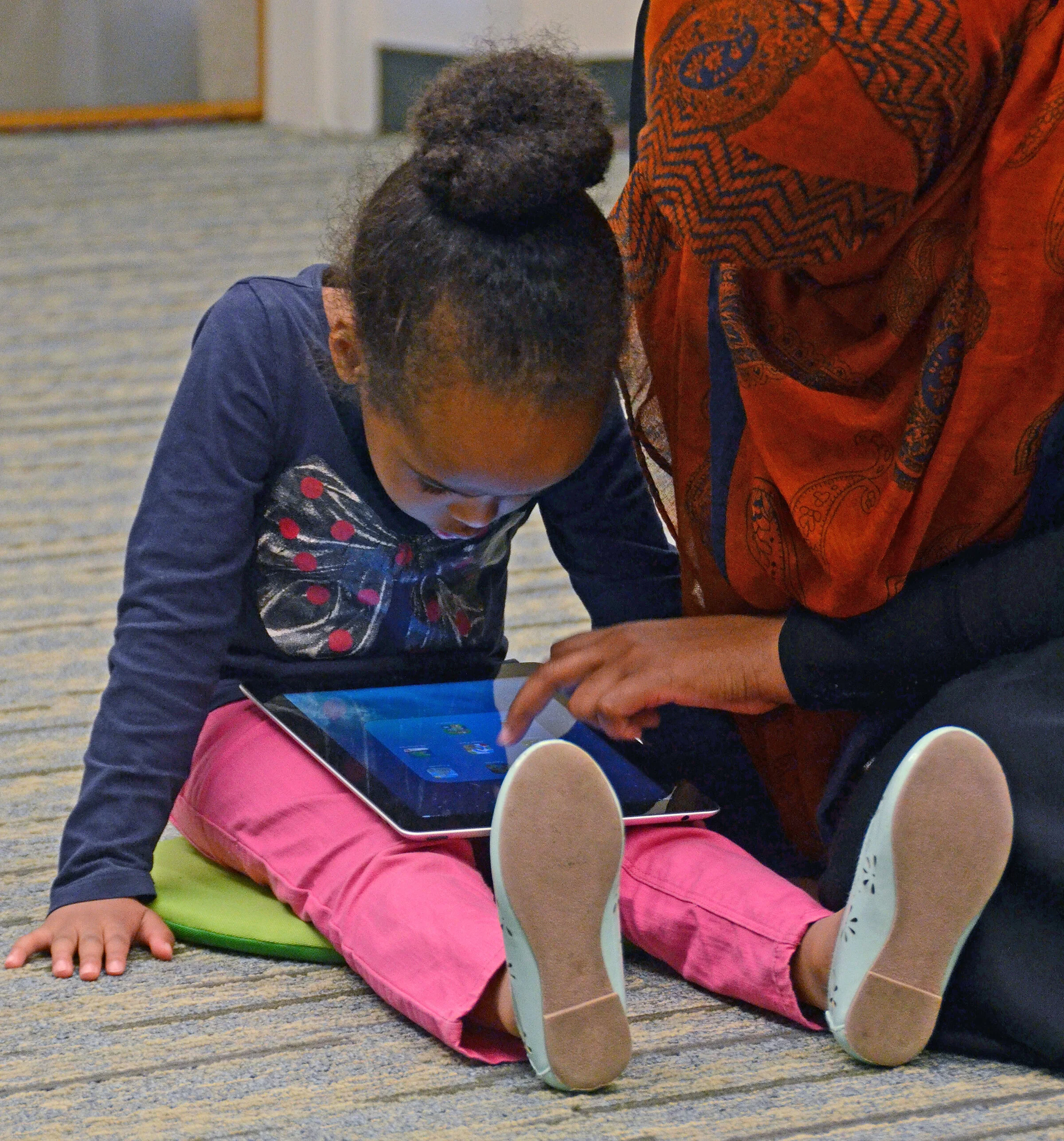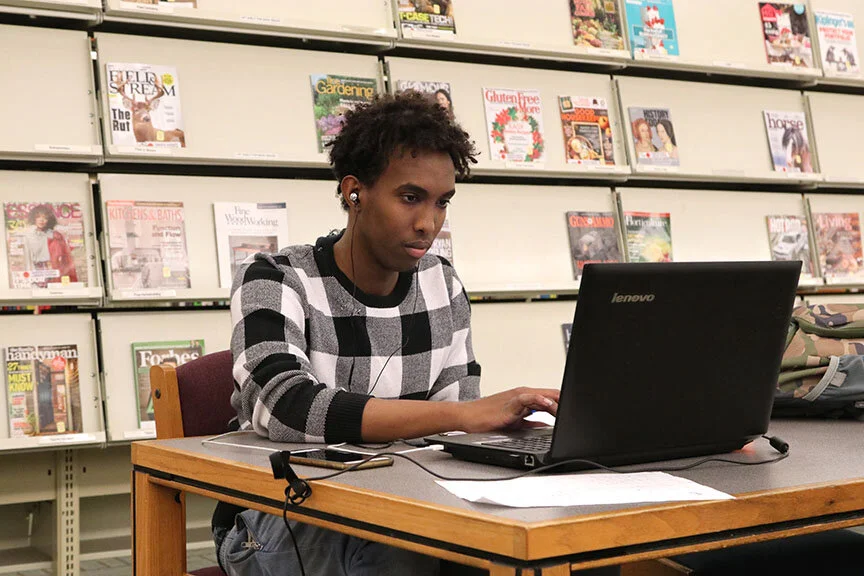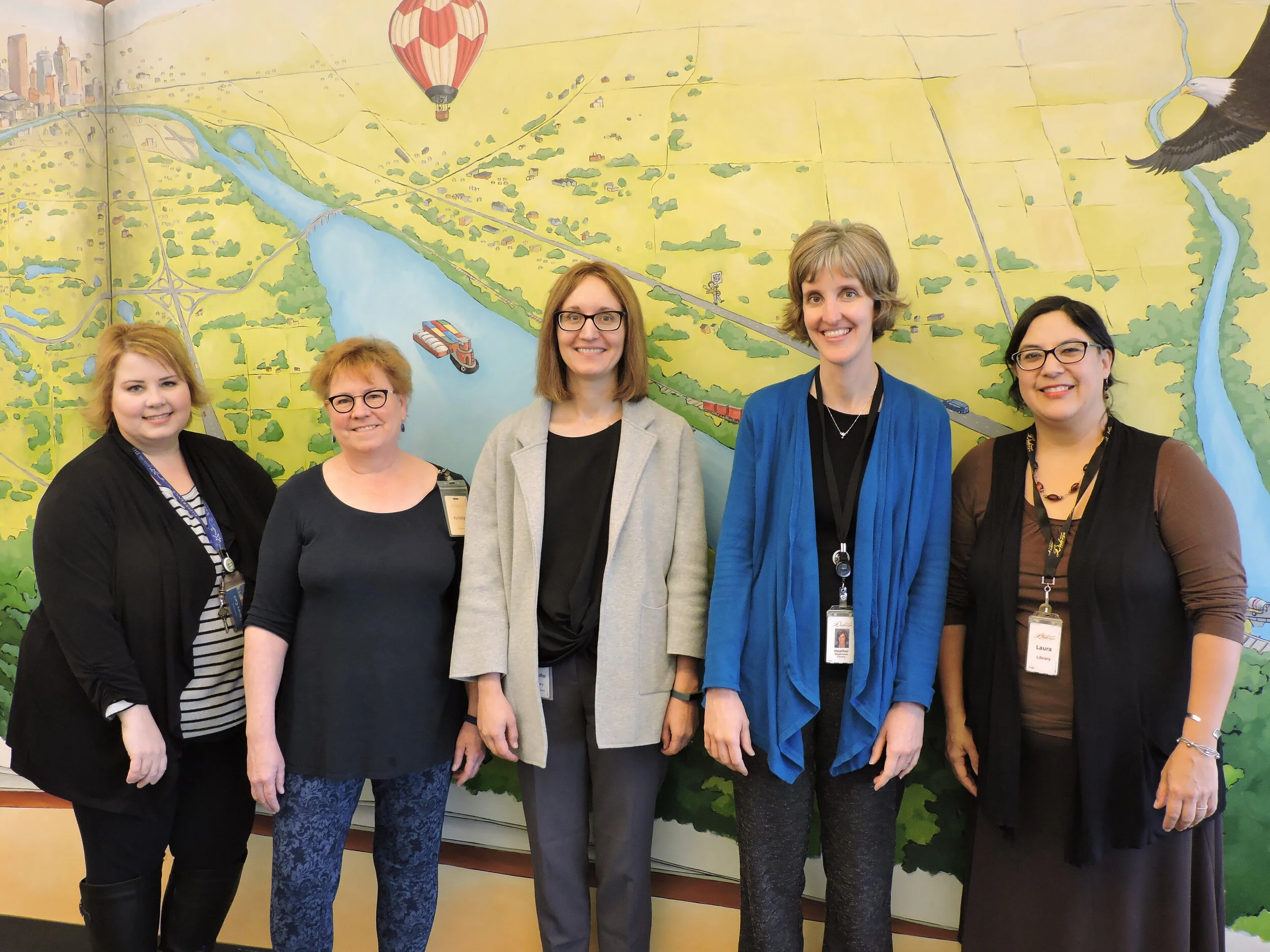“Can we pray in the library?”
That question was a wake-up call for librarians at the Dakota County Library in Minnesota who found themselves catering to a new and growing population - Somali families. Prayer rugs were bought and provided during Salat times. A few months and many uses later, they needed more.
The library wanted to go further, so they joined the OF/BY/FOR ALL Change Network. “If you look at our Burnhaven branch, the Somali community is present in the library but generally were not connected to our programs,” said Jennifer Reichert Simpson, Deputy Director of Dakota County Library. “There’s a significant demographic we weren’t reaching.”
Could the library use its available resources and programs to make the library more accessible to this community?
Phase 1: Finding a Way In
A team from Dakota County Library joined the OF/BY/FOR ALL Change Network in October 2018. Their goal was to build on the momentum of the conversations they had started with Somali immigrants at the local mosque. It soon became clear that Somali moms are the communications hub and the social influencers of the community.
As one community partner told library staff in a Partner Power meeting: “If you want to work with the kids and see them more in the programs, you talk to the moms. The moms would be the ones to bring them to the library. From there, the rest of the family joins in.”
Event flyers didn’t work. To reach them more personally, the library engaged a Community Relations Consultant Q Mursal, a Somali person with deep roots in the community who works as an Events Coordinator at the local mosque. Q was also previously hired to train library staff on building cultural capacity and knowledge of Somali and Muslim communities statewide. The information shared was far-ranging - from a history of oral traditions to the role of kin and tribal networks - and served as a guide for the Library to navigate the Somali culture and develop relevant programs for the community.

A Somali mom and child using the digital resources at the Dakota County Library (Photo: Dakota County Library)
Phase 2: Doing what we already did - differently
Before shifting their work, the library hosted a celebration to engage youths and the Somali community. It was well-attended… but not by the intended audience.
Being part of the OF/BY/FOR ALL Change Network meant pushing past comfort zones for the library team. One of the Change Network tools the team used had them going out into the community and to start a conversation with Somali moms about their assets and needs. Then, the librarians looked for ways to push internal boundaries and adjust available services
“It wasn’t about reinventing the wheel, but doing something we did already, in a different and better way,” said Jennifer.
The conversations at the mosque provided the time and space for library staff to get a deeper understanding of what Somali mothers really valued. A lot of it revolved around education. The moms requested activities to prepare their children for academic success.
So the Library shifted to focus on making changes to their after-school “homework help” program to make it more relevant to these families. By doing so, they were answering a call from the community instead of creating events they assumed the community wanted.
The Library started recruiting new homework help volunteers from the community to make the program of and by them. Saida Ismail, a Somali mother of two, is a volunteer homework helper at the library. For two hours a week, she helps her community with their math and English. Saida herself has gone back to school to be a math teacher.
“There are so many families with kids who need help and who can't afford outside tutors. Not just the children, but there are adults who take ESL classes who need help. I think the community needs this,” said Saida.

A Somali youth working at the Burnhaven branch library. (Photo: Dakota County Library)
Phase 3: An Aspiration for Co-creation
Dakota County Library is pursuing a holistic and long-term systems change. The impact they’ve seen is gradual but tangible. They’ve seen an increase in the use of facilities by Somali families - and they keep building new relationships and opportunities for involvement.
“I used to go there growing up. There was not much belonging or ownership, no different from any other library. But now that I know the staff and their outlook and concern, it’s different walking in,” said Q, who lives around the corner from the library. “There’s been an increase in usage and feeling that they belong here. People know they don't have leave the library to pray and that the staff have an understanding of their culture.”
Saida likes to bring her family to the library to borrow books. She also uses it as a place of respite for herself. “There's more connection now than before. People go there to spend their evenings. It’s somewhere for them to go and spend time after dinner,” said Saida. “And I just discovered some of the librarians know how to make good Somali tea!”
The next step is to increase community participation. The library sees co-creation as the goal, but it’s still a novel concept for everyone on staff. The library has just renewed their membership in the Change Network, and they continue to roll out new engagement strategies in a slow and steady way externally with the Somali community and internally with staff. To be OF/BY/FOR ALL requires all parties coming to the table to understand each other.
“People see the Library connected to children or school groups. But we have a lot more resources to offer. If you’re changing careers or facing barriers and want to learn and improve your knowledge, we’re here,” said Jennifer.
“The entire staff is so excited to deepen our connection to our Somali neighbors,” added Kristy Barnes, a librarian at Dakota County Library - Burnhaven branch. “Wonderful programs and initiatives are being planned with the help of the community.”

Dakota County Library team. (Photo: Dakota County Library)
Want to take this kind of inclusive journey with your organization? Learn more about the OF/BY/FOR ALL Change Network.
This post was written with support from Titania Veda.
